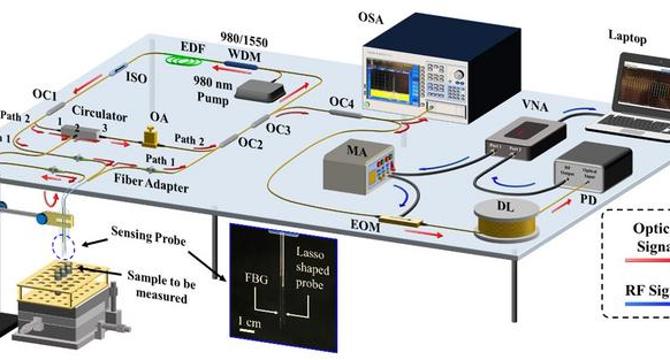Bioengineer
1w
283

Image Credit: Bioengineer
Microwave Photonics-Powered Dual Wavelength Fiber Laser System Enhances Early Cancer Detection through High-Resolution Tumor Marker Identification
- Researchers have developed a tumor marker detection system that uses a microwave photonics-powered dual-wavelength fiber laser sensing system optimized for high resolution screening.
- The system uses an optical fiber to integrate optical detection and signal transmission, enhancing the performance of the screening process.
- The micro-lasso-shaped optical fiber sensor generates dual-wavelength laser output that is analysed using microwave photonics, allowing for a nuanced examination of the sensing signals.
- The refractive index sensitivity of the proposed biosensor system was an impressive 1083 nm/RIU through wavelength demodulation.
- The biosensor system demonstrated an ideal detection resolution vastly improved over existing techniques in the realm of optical fiber sensing.
- Trials using human serum samples successfully discriminated between differing levels of tumor markers in various samples, illustrating the sensor’s potential for incorporation into real-world diagnostics.
- The mission of the study is to transform how cancer screenings are approached and to improve the likelihood of catching cancer at its earliest stages.
- The research exemplifies a blend of interdisciplinary collaboration, marrying concepts of microwave technology with cutting-edge optical sensing.
- The advancements made through this study promises to reshape the future of cancer detection, paving the way toward combating this pervasive disease.
- The study heralds a new era in oncological diagnostics, where early detection through sophisticated sensing technology could become as routine as a standard blood test.
Read Full Article
17 Likes
For uninterrupted reading, download the app